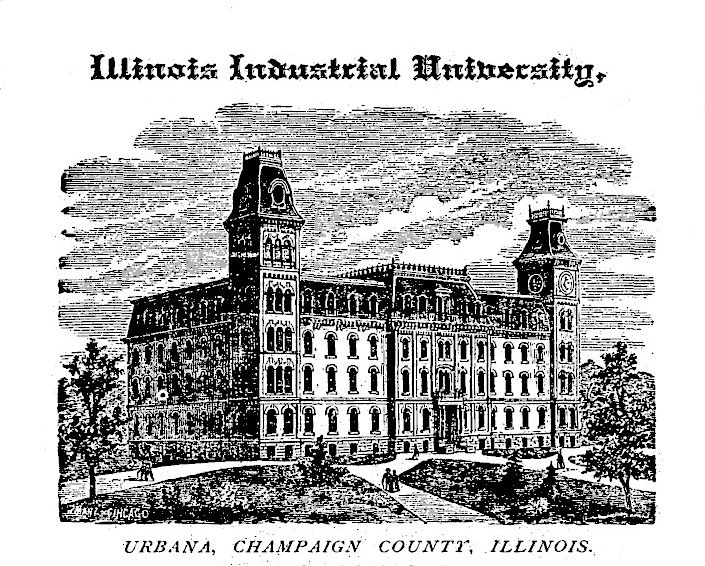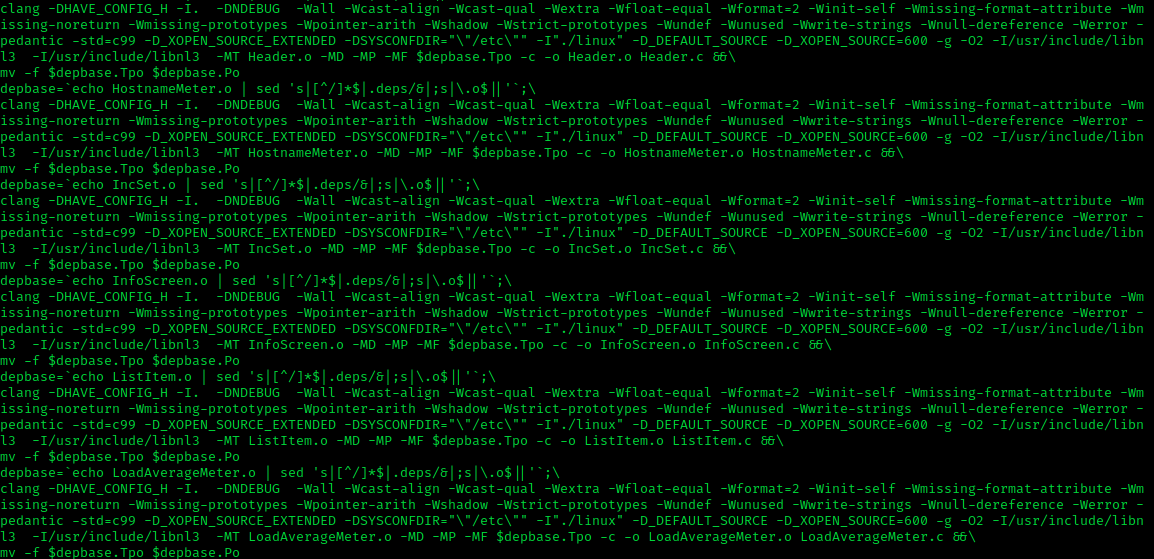|
UIUC License
The University of Illinois/NCSA Open Source License is a permissive free software license, based on the MIT/X11 license and the 3-clause BSD license. By combining parts of these two licenses, it attempts to be clearer and more concise than either. The license is the result of efforts by a University of Illinois committee set up in 2001. The intention was to create a new license standard for both the National Center for Supercomputing Applications (NCSA) and the worldwide software community. It was formally certified as an open-source license during a March 28, 2002 board meeting of the Open Source Initiative (OSI). Source code under the NCSA license can be incorporated into proprietary products without the reciprocity requirements that copyleft free software licenses raise. The license is compatible with all versions of the GNU General Public License. Notable software using the license includes LLVM and Clang (version 8.0.1 or earlier). Terms The following is a license t ... [...More Info...] [...Related Items...] OR: [Wikipedia] [Google] [Baidu] |
Permissive Free Software License
A permissive software license, sometimes also called BSD-like or BSD-style license, is a free-software license which instead of copyleft protections, carries only minimal restrictions on how the software can be used, modified, and redistributed, usually including a warranty disclaimer. Examples include the GNU All-permissive License, MIT License, BSD licenses, Apple Public Source License and Apache license. the most popular free-software license is the permissive MIT license. Comparison table Example The following is the full text of the simple GNU All-permissive License: Definitions The Open Source Initiative defines a permissive software license as a "non-copyleft license that guarantees the freedoms to use, modify and redistribute". GitHub's ''choosealicense'' website describes the permissive MIT license as " ettingpeople do anything they want with your code as long as they provide attribution back to you and don't hold you liable." California Western School o ... [...More Info...] [...Related Items...] OR: [Wikipedia] [Google] [Baidu] |
GNU General Public License
The GNU General Public Licenses (GNU GPL or simply GPL) are a series of widely used free software licenses, or ''copyleft'' licenses, that guarantee end users the freedom to run, study, share, or modify the software. The GPL was the first copyleft license available for general use. It was originally written by Richard Stallman, the founder of the Free Software Foundation (FSF), for the GNU Project. The license grants the recipients of a computer program the rights of the Free Software Definition. The licenses in the GPL series are all copyleft licenses, which means that any derivative work must be distributed under the same or equivalent license terms. The GPL is more restrictive than the GNU Lesser General Public License, and even more distinct from the more widely used permissive software licenses such as BSD, MIT, and Apache. Historically, the GPL license family has been one of the most popular software licenses in the free and open-source software (FOSS) domai ... [...More Info...] [...Related Items...] OR: [Wikipedia] [Google] [Baidu] |
University Of Illinois Urbana-Champaign
The University of Illinois Urbana-Champaign (UIUC, U of I, Illinois, or University of Illinois) is a public university, public land-grant university, land-grant research university in the Champaign–Urbana metropolitan area, Illinois, United States. Established in 1867, it is the founding campus and Flagship#Colleges and universities in the United States, flagship institution of the University of Illinois System. With over 59,000 students, the University of Illinois is one of the List of United States public university campuses by enrollment, largest public universities by enrollment in the United States. The university contains 16 schools and colleges and offers more than 150 undergraduate and over 100 graduate programs of study. The university holds 651 buildings on and its annual operating budget in 2016 was over $2 billion. The University of Illinois Urbana-Champaign also operates Research Park at the University of Illinois Urbana-Champaign, a research park home to innova ... [...More Info...] [...Related Items...] OR: [Wikipedia] [Google] [Baidu] |
SPDX
System Package Data Exchange (SPDX, formerly Software Package Data Exchange) is an open standard capable of representing systems with digital components as bills of materials (BOMs). First designed to describe software components, SPDX can describe the components of software systems, AI models, software builds, security data, and other data packages. SPDX allows the expression of components, licenses, copyrights, security references and other metadata relating to systems. The original purpose of SPDX was to improve license compliance, and it has since been expanded to facilitate additional use cases such as supply-chain transparency and security. SPDX is authored by the community-driven SPDX Project involving key industry experts, organizations, and open-source enthusiasts under the auspices of the Linux Foundation. The SPDX specification is recognized as the international open standard for security, license compliance, and other software supply chain artifacts as ISO/IEC 596 ... [...More Info...] [...Related Items...] OR: [Wikipedia] [Google] [Baidu] |
:Category:Software Using The University Of Illinois/NCSA Open Source License
{{catmain, University of Illinois/NCSA Open Source License Software Software consists of computer programs that instruct the Execution (computing), execution of a computer. Software also includes design documents and specifications. The history of software is closely tied to the development of digital comput ... that uses the NCSA License. NCSA License ... [...More Info...] [...Related Items...] OR: [Wikipedia] [Google] [Baidu] |
Academic Free License
The Academic Free License (AFL) is a permissive free software license written in 2002 by Lawrence E. Rosen, a former general counsel of the Open Source Initiative (OSI). The license grants similar rights to the BSD, MIT, UoI/NCSA and Apache licenses licenses allowing the software to be made proprietary but was written to correct perceived problems with those licenses. The AFL: *makes clear what software is being licensed by including a statement following the software's copyright notice; *includes a complete copyright grant to the software; *contains a complete patent grant to the software; *makes clear that no trademark rights are granted to the licensor's trademarks; *warrants that the licensor either owns the copyright or is distributing the software under a license; *is itself copyrighted, with the right granted to copy and distribute without modification. The Free Software Foundation consider all AFL versions up to and including 3.0 as incompatible with the GNU GPL. th ... [...More Info...] [...Related Items...] OR: [Wikipedia] [Google] [Baidu] |
Lawrence Rosen (attorney)
Lawrence Rosen (also Larry Rosen) is an American attorney and computer specialist. He is a founding partner of Rosenlaw & Einschlag, a Californian technology law firm, specializing in intellectual property protection, licensing and business transactions for technology companies. He also served as general counsel and secretary of the Open Source Initiative, and participates in open source foundations and projects, such as the Python Software Foundation, and the Free Standards Group. Rosen was a lecturer in law at Stanford Law School in Spring 2006. He is the author of the Academic Free License and the Open Software License. He is a member of the board of the Open Web Foundation. Rosen was a director of the Apache Software Foundation from July 2011 to March 2012. References ...
|
Clang
Clang () is a compiler front end for the programming languages C, C++, Objective-C, Objective-C++, and the software frameworks OpenMP, OpenCL, RenderScript, CUDA, SYCL, and HIP. It acts as a drop-in replacement for the GNU Compiler Collection (GCC), supporting most of its compiling flags and unofficial language extensions. It includes a static analyzer, and several code analysis tools. Clang operates in tandem with the LLVM compiler back end and has been a subproject of LLVM 2.6 and later. As with LLVM, it is free and open-source software under the Apache 2.0 software license. Its contributors include Apple, Microsoft, Google, ARM, Sony, Intel, and AMD. Clang 17, the latest major version of Clang as of October 2023, has full support for all published C++ standards up to C++17, implements most features of C++20, and has initial support for the C++23 standard. Since v16.0.0, Clang compiles C++ using the GNU++17 dialect by default, which includes features fro ... [...More Info...] [...Related Items...] OR: [Wikipedia] [Google] [Baidu] |
LLVM
LLVM, also called LLVM Core, is a target-independent optimizer and code generator. It can be used to develop a Compiler#Front end, frontend for any programming language and a Compiler#Back end, backend for any instruction set architecture. LLVM is designed around a language-independent specification, language-independent intermediate representation (IR) that serves as a Software portability, portable, high-level assembly language that can be optimizing compiler, optimized with a variety of transformations over multiple passes. The name ''LLVM'' originally stood for ''Low Level Virtual Machine.'' However, the project has since expanded, and the name is no longer an acronym but an orphan initialism. LLVM is written in C++ and is designed for compile-time, Linker (computing), link-time, runtime (program lifecycle phase), runtime, and "idle-time" optimization. Originally implemented for C (programming language), C and C++, the language-agnostic design of LLVM has since spawned a wide ... [...More Info...] [...Related Items...] OR: [Wikipedia] [Google] [Baidu] |
License Compatibility
License compatibility is a legal framework that allows for pieces of software with different software licenses to be distributed together. The need for such a framework arises because the different licenses can contain contradictory requirements, rendering it impossible to legally combine source code from separately-licensed software in order to create and publish a new program. Proprietary licenses are generally program-specific and incompatible; authors must negotiate to combine code. Copyleft licenses are commonly deliberately incompatible with proprietary licenses, in order to prevent copyleft software from being re-licensed under a proprietary license, turning it into proprietary software. Many copyleft licenses explicitly allow relicensing under some other copyleft licenses. Permissive licenses are (with minor exceptions) compatible with everything, including proprietary licenses; there is thus no guarantee that all derived works will remain under a permissive license. ... [...More Info...] [...Related Items...] OR: [Wikipedia] [Google] [Baidu] |
MIT License
The MIT License is a permissive software license originating at the Massachusetts Institute of Technology (MIT) in the late 1980s. As a permissive license, it puts very few restrictions on reuse and therefore has high license compatibility. Unlike copyleft software licenses, the MIT License also permits reuse within proprietary software, provided that all copies of the software or its substantial portions include a copy of the terms of the MIT License and also a copyright notice. In 2015, the MIT License was the most popular software license on GitHub, and was still the most popular in 2025. Notable projects that use the MIT License include the X Window System, Ruby on Rails, Node.js, Lua (programming language), Lua, jQuery, .NET, Angular (web framework), Angular, and React (JavaScript library), React. License terms The MIT License has the identifier MIT in the SPDX License List. It is also known as the "#Ambiguity and variants, Expat License". It has the following terms: Co ... [...More Info...] [...Related Items...] OR: [Wikipedia] [Google] [Baidu] |
Free Software Licenses
A free-software license is a notice that grants the recipient of a piece of software extensive rights to modify and redistribute that software. These actions are usually prohibited by copyright law, but the rights-holder (usually the author) of a piece of software can remove these restrictions by accompanying the software with a software license which grants the recipient these rights. Software using such a license is free software (or free and open-source software) as conferred by the copyright holder. Free-software licenses are applied to software in source code and also binary object-code form, as the copyright law recognizes both forms. Comparison Free-software licenses provide risk mitigation against different legal threats or behaviors that are seen as potentially harmful by developers: History Pre-1980s In the early times of software, sharing of software and source code was common in certain communities, for instance academic institutions. Before the US Com ... [...More Info...] [...Related Items...] OR: [Wikipedia] [Google] [Baidu] |




